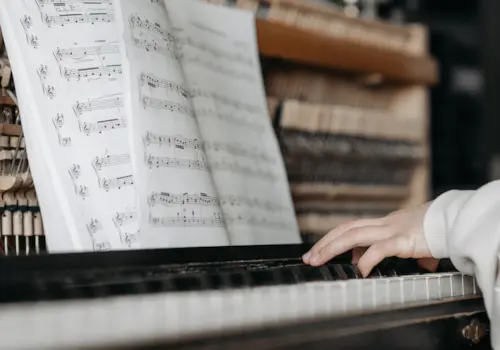02 October 2012
|
Teacher and concert pianist Lucy Parham shows you how to find the perfect balance between melody and accompaniment in this Lieder-like yet deceptively simple Schubert piano piece. Read what Lucy has to say. The piece is inside Pianist 68.
SCHUBERT IMPROMPTU IN G FLAT MAJOR OP 90 NO 3
Ability Rating: Advanced
Key: G flat major
Tempo: Andante
Style: Classical/Romantic
Will improve your:
- RH finger control
- Balance between hands
- Layering of sound
Learning Tip Learn the whole piece in block chords first
This sublime piece is surely a forerunner of Mendelssohn’s Songs without Words. As a melodist, Schubert remains unsurpassed and this exquisite and deeply poignant Impromptu is the perfect example of his melodic genius. He was, of course, the master of Lieder, and this is how you should view this Impromptu. Originally published in G major and in 4/4 (Schubert’s publishers deemed it too difficult to play in G flat), it is now always played in G flat. In my mind, this is the key of stillness and benediction (the idea of keys and their meanings is the topic of another article entirely).
At first glance, this piece might seem fairly simple to play, but appearances are most deceptive. The perfect balance between the melody and the accompaniment is hard to achieve, as is the balance between the RH and the LH. The LH needs to act as a foundation upon which the RH can rest. The LH needs to support and colour the RH. Sometimes it even challenges the RH – see bar 38 for a perfect example of this. Do not be fooled into thinking it’s just a series of chords!
The most debatable issue, to begin with, is the legato that forms the RH melody. I must admit that I am a great advocate for an unusual amount of finger substitution in order to make the melody as seamless as possible. However, not everyone – and not every edition –agrees with me. I have seen several great pianists play beautifully without using this technique, so it really is your decision, as it’s a lot of extra work.
Learn the Impromptu first without pedal, and if it sounds pretty smooth and seamless you are on the right track. Another practice tip is to sing the melody while playing everything else. This works beautifully and is a practice method that could also be used in many bel canto pieces such as Chopin’s nocturnes and Mendelssohn’s Songs without Words [see Pianist No 67 for more about songs without words].
Tempted to read the full article? Why not buy Pianist 68 today?







